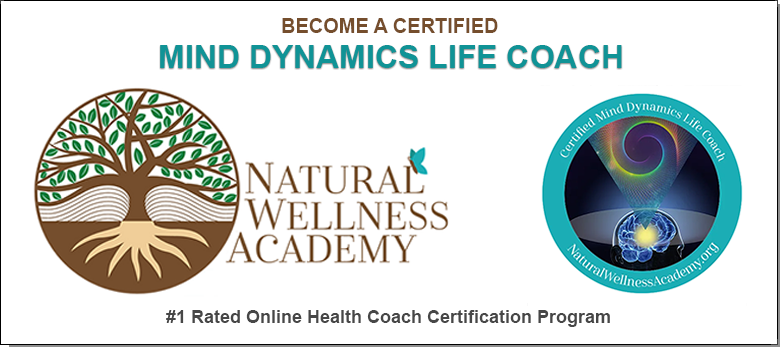
The intricate relationship between physical and mental health has long intrigued researchers and health professionals alike. In recent years, Mind Dynamics Coaching has emerged as a transformative approach to understanding and enhancing this connection. By integrating mindfulness, cognitive behavioral techniques, and emotional regulation strategies, Mind Dynamics Coaching offers a holistic pathway to well-being.
Contents
Understanding Mind Dynamics Coaching
Mind Dynamics Coaching is a comprehensive approach that combines various techniques to enhance mental and physical well-being. By exploring the roots and evolution of this practice, we can gain a deeper appreciation for its principles and the significant role coaches play in guiding individuals toward holistic health.
Historical Background and Evolution
Mind Dynamics Coaching has its origins in ancient mindfulness practices, cognitive behavioral therapy (CBT), and modern neuroscience. Early forms of mindfulness and meditation, practiced for centuries in various cultures, laid the foundation for integrating mind-body techniques. In the mid-20th century, CBT emerged as a powerful tool for addressing mental health issues, providing a structured approach to changing negative thought patterns and behaviors. The integration of these methods, along with advances in neuroscience, gave rise to Mind Dynamics Coaching as a distinct discipline.
Core Principles and Techniques
At the heart of Mind Dynamics Coaching are several core principles and techniques designed to foster mental clarity, emotional stability, and physical well-being.
Mindfulness and Meditation
Mindfulness and meditation are fundamental components of Mind Dynamics Coaching. These practices encourage individuals to focus on the present moment, reducing stress and enhancing self-awareness. Regular mindfulness exercises can improve attention span, emotional regulation, and overall mental health.
Cognitive Behavioral Techniques
Cognitive behavioral techniques are integral to Mind Dynamics Coaching. These methods help individuals identify and challenge negative thought patterns, replacing them with more positive and constructive ones. By restructuring cognitive processes, clients can better manage their emotions and behaviors, leading to improved mental and physical health.
Emotional Regulation Strategies
Emotional regulation strategies are essential for maintaining balance and resilience. Mind Dynamics Coaching equips individuals with tools to understand and manage their emotions effectively. Techniques such as deep breathing, journaling, and visualization can help individuals cope with stress, anxiety, and other emotional challenges.
Role of the Mind Dynamics Coach
The role of a Mind Dynamics Coach is to guide individuals through the process of integrating these techniques into their daily lives. Coaches provide personalized support, helping clients set realistic goals and develop actionable plans. By offering ongoing encouragement and accountability, coaches play a crucial role in facilitating lasting positive changes in both mental and physical health.
The Link Between Physical and Mental Health
The connection between physical and mental health is well-established, with numerous studies demonstrating how these aspects of well-being influence each other. By understanding this link, we can appreciate the importance of a holistic approach to health and the benefits of integrating Mind Dynamics Coaching into our lives.
Scientific Evidence Supporting the Connection
Research has shown that our physical and mental health are deeply intertwined. Understanding this relationship can help us make informed decisions about our well-being.
Impact of Mental Health on Physical Conditions
Mental health significantly affects physical health. Chronic stress, for instance, can lead to various physical ailments such as hypertension, cardiovascular disease, and weakened immune function. Anxiety and depression can exacerbate conditions like chronic pain and gastrointestinal issues, illustrating the profound impact of mental well-being on the body [1].
Influence of Physical Health on Mental Well-Being
Conversely, physical health also affects mental well-being. Regular physical activity, for example, has been shown to reduce symptoms of depression and anxiety. Proper nutrition and adequate sleep are crucial for maintaining cognitive function and emotional balance. Chronic physical illnesses can lead to mental health challenges, emphasizing the bidirectional nature of this relationship.
Examples of Interconnected Health Issues
Several health issues exemplify the connection between physical and mental health. By examining these examples, we can better understand the importance of addressing both aspects in a comprehensive manner.
Chronic Stress and Heart Disease
Chronic stress is a significant risk factor for heart disease. Stress triggers the release of hormones like cortisol and adrenaline, which can increase heart rate and blood pressure. Over time, this heightened state can lead to hypertension and other cardiovascular issues. Managing stress through techniques such as mindfulness and relaxation exercises can improve heart health and reduce the risk of disease.
Depression and Chronic Pain
Depression and chronic pain often coexist, creating a vicious cycle where each condition exacerbates the other. Depression can lower pain tolerance, while chronic pain can lead to feelings of hopelessness and despair. Mind Dynamics Coaching can help individuals develop strategies to manage both conditions simultaneously, improving overall quality of life.
Anxiety and Gastrointestinal Disorders
Anxiety is closely linked to gastrointestinal disorders like irritable bowel syndrome (IBS). The gut-brain axis, a complex communication network between the digestive system and the brain, plays a crucial role in this relationship. Anxiety can trigger or worsen gastrointestinal symptoms, while digestive issues can increase anxiety levels. Techniques that promote relaxation and stress management can alleviate symptoms and improve gut health.

Benefits of Integrating Mind Dynamics Coaching
Integrating Mind Dynamics Coaching into one’s life can yield significant benefits across various dimensions of health. This approach helps individuals achieve a harmonious balance between their mental and physical states, leading to a more fulfilling and resilient lifestyle.
Improved Mental Clarity and Focus
One of the primary benefits of Mind Dynamics Coaching is enhanced mental clarity and focus. Techniques such as mindfulness and cognitive behavioral strategies help individuals clear mental clutter, allowing for better concentration and decision-making. This heightened focus can improve productivity, creativity, and problem-solving abilities in both personal and professional contexts [2].
Enhanced Emotional Stability and Resilience
Mind Dynamics Coaching equips individuals with tools to manage their emotions effectively, promoting greater emotional stability and resilience. By practicing mindfulness and emotional regulation techniques, clients learn to respond to stress and adversity with calmness and composure. This emotional resilience helps in navigating life’s challenges more effectively, reducing the risk of mental health issues such as anxiety and depression.
Better Physical Health Outcomes
The physical health benefits of Mind Dynamics Coaching are substantial. Regular practice of mindfulness and stress reduction techniques can lower blood pressure, improve heart health, and boost immune function. Physical exercise and movement, often integrated into coaching programs, enhance overall fitness and reduce the risk of chronic diseases. Improved sleep quality and nutrition, fostered by a holistic coaching approach, contribute to overall physical well-being.
Case Studies and Success Stories
Real-life examples highlight the transformative impact of Mind Dynamics Coaching. Case studies and success stories demonstrate how individuals have overcome significant health challenges through this approach. For instance, clients with chronic pain have reported substantial relief and improved quality of life by integrating mindfulness and cognitive behavioral techniques into their daily routines. Others have achieved remarkable improvements in mental clarity, emotional balance, and physical health, illustrating the comprehensive benefits of this coaching method.
Techniques Used in Mind Dynamics Coaching for Holistic Health
Mind Dynamics Coaching employs a variety of techniques to promote holistic health, addressing both mental and physical well-being. These methods are designed to help individuals manage stress, enhance physical health, and achieve mind-body synchronization.
Stress Reduction Practices
Managing stress is a crucial aspect of Mind Dynamics Coaching. Stress reduction practices are essential for maintaining mental clarity and emotional balance, which in turn positively affect physical health.
Breathing Exercises
Breathing exercises are fundamental in stress management. Techniques such as deep breathing and diaphragmatic breathing help activate the body’s relaxation response, reducing cortisol levels and promoting a sense of calm. Regular practice of these exercises can improve lung capacity and overall respiratory health [3].
Progressive Muscle Relaxation
Progressive muscle relaxation (PMR) is a technique that involves tensing and relaxing different muscle groups in the body. This method helps reduce physical tension and mental stress, leading to improved relaxation and better sleep quality. PMR can be especially beneficial for individuals experiencing chronic pain or anxiety.
Techniques for Enhancing Physical Well-Being
Physical health is an integral part of overall well-being. Mind Dynamics Coaching incorporates various techniques to enhance physical fitness and health.
Physical Exercise and Movement
Regular physical exercise is crucial for maintaining physical health. Mind Dynamics Coaching encourages activities such as walking, yoga, and strength training to improve cardiovascular health, flexibility, and muscle strength. Exercise also releases endorphins, which boost mood and reduce stress.
Nutrition and Dietary Considerations
Proper nutrition plays a vital role in supporting both mental and physical health. Coaches guide individuals in making healthy dietary choices, focusing on balanced meals that include essential nutrients. Emphasizing whole foods, hydration, and mindful eating can improve energy levels, cognitive function, and overall health [4].
Mind-Body Synchronization Methods
Achieving harmony between the mind and body is a core goal of Mind Dynamics Coaching. Various methods are used to synchronize these aspects, promoting holistic well-being.
Yoga and Tai Chi
Yoga and Tai Chi are ancient practices that integrate physical movement with mindfulness. These activities improve flexibility, balance, and strength while fostering a calm and focused mind. Regular practice can reduce stress, enhance mental clarity, and improve overall physical health.
Biofeedback and Neurofeedback
Biofeedback and neurofeedback are advanced techniques used to monitor physiological responses and train individuals to control them. By using sensors and computer programs, individuals can learn to regulate heart rate, muscle tension, and brain wave activity. These methods can help manage stress, improve mental focus, and enhance physical performance.
References
[1] The Intersection of Physical and Mental Health
[2] The intersection between physical health and mental health: a global perspective
[3] The Intersection of Physical Therapy and Mental Health
[4] Study shows link between mental and physical health

